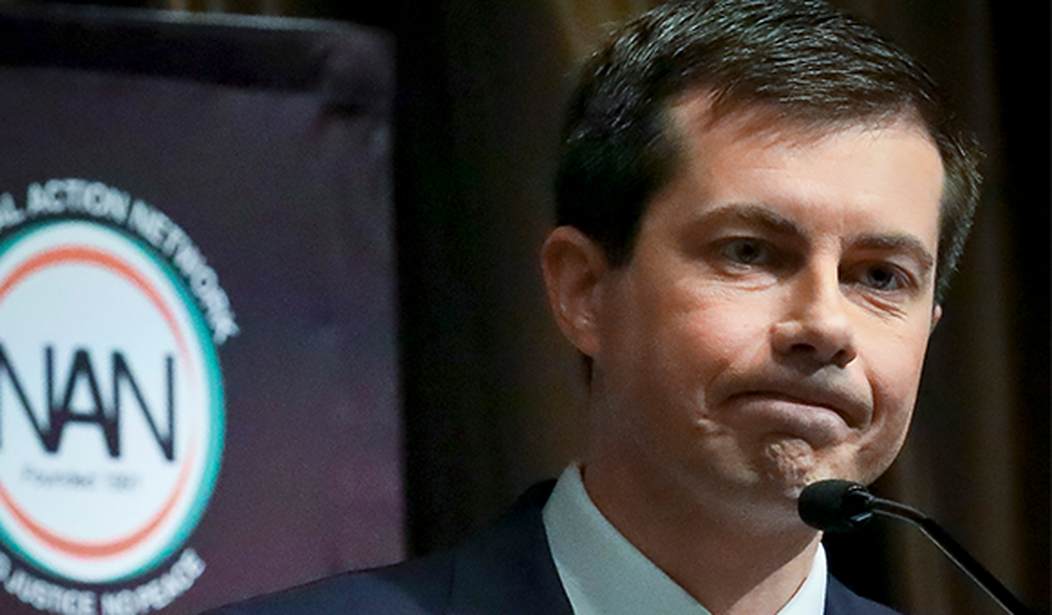“National service will hopefully become one of the themes of the 2020 campaign,” declared Pete Buttigieg, mayor of South Bend, Indiana, and up-and-coming Democratic Party presidential candidate.
Why?
Talking to MSNBC’s Rachel Maddow, Mayor Buttigieg offered: “we really want to talk about the threat to social cohesion that helps characterize this presidency, but also just this era.”
Oh, goodie, another threat from which the wannabe wizards of Washington can save us.
“One thing we could do that would help change that,” announced Buttigieg, “would be to make it, if not legally obligatory, then certainly a social norm that anybody after they’re 18 spends a year in national service.”
By national service, he means a year of military service or mandatory civilian service, i.e. helping this government agency or that. But what does he mean by “if not legally obligatory”?
Perhaps it is nothing more than this: Buttigieg is indeed considering a program of forced service, but wants plausible deniability, a way to back off in the heat of an election campaign . . . when moms and dads are voting.
Later, on MSNBC’s Monday Joe, he again urged a “look at national service,” and added, “It can be voluntary, but at the very least let’s create more opportunities for more people to have a service year after high school, because that builds community.”
Recommended
Can be voluntary? I really want to hear Mr. Buttigieg say it cannot be compulsory, no conscription.
A candidate wants to give my 18-year-old an opportunity, a paying job? I’m all ears. A candidate wants to essentially kidnap my young adult for a year? We are going to battle. But what to make of a candidate that isn’t quite sure which way he wants to go, as if a “job opportunity” and “a period of involuntary servitude” were the same thing?
What seems obvious to citizens seems lost on politicians, the rather clear difference between offering jobs to the nation’s 4 million 18-year-olds and dragging them away from their lives to make them work for Washington.
Even if it is strictly a voluntary program — offering more positions for interested young people — Buttigieg talks about creating a year of service as a social norm. He wants “the first question on your college application” or “the first question when you’re being interviewed for a job” to be whether a young person dutifully performed his or her national service.
Hey, I want a lot of things. Does a President Buttigieg plan to force all colleges and employers to ask his question first?
Service is a good thing. It can help both our communities and the people performing the service. But those are the benefits of “service,” not forced service, which is more accurately “servitude.”
And those benefits also come with costs. At the federal minimum wage, it would amount to more than $60 billion a year to hire every 18-year-old American. Not counting a single cent for those hired to manage the program or other overhead and program expenses. And, by definition, these would be make-work jobs for generally low-skilled young people lacking experience.
What could go wrong?
Buttigieg does have a story to tell of enlisting and serving in Afghanistan. “You learn to trust each other with your life,” he says of his volunteer — not drafted — experience. And he wants “more Americans to have that,” he explains, “but I don’t want you to have to go to war to get it.”
Good thinking! Let’s not fight wars merely for the character-building opportunities and increased levels of social cohesion that might result. But let’s also not pretend that sweeping city streets working with AmeriCorps will provide the same life-or-death crucible as combat for producing such bonding moments.
It won’t . . . hopefully.
Host Maddow, for her part, supports a draft, but expressed to Buttigieg her doubts about its feasibility, noting “we seem wired as a country to reject that at every level.”
Thankfully, to her own consternation Maddow is correct: Land of the free, home of the brave and all.
This week in Washington, the Commission on Military, National, and Public Service holds hearings on whether to extend draft registration to women or to end it for men. The commission is charged to report back to Congress next year on this issue as well as presidential contender Buttigieg’s idea of Congress perhaps legislating mandatory military and/or civilian government “service” for young people.
End draft registration for everyone, equally. No forced national service. Leave young people free to pursue their own happiness.

























Join the conversation as a VIP Member